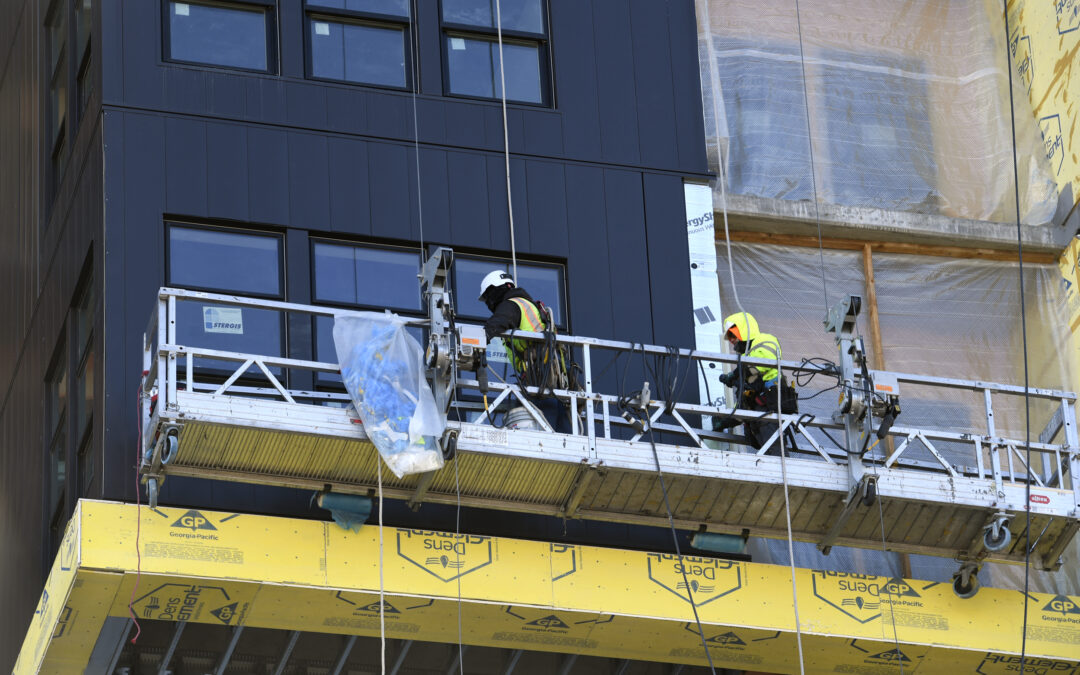Colorado health officials are considering whether to eliminate requirements to monitor and treat groundwater now being discharged from large commercial structures, saying the regulations add too much cost to business operations and to new construction projects, including affordable housing developments.
The water can come from a variety of sources, including underground parking structures and elevator shafts.
Roughly 100 such “dewatering systems,” as they are called, now operate in the state, according to the Colorado Department of Public Health and Environment, with the majority in urban areas, such as downtown Denver and Cherry Creek.
Environmentalists, however, are sounding the alarm, saying the water is often highly contaminated and, if it is allowed to percolate through soils without treatment, will make its way to rivers, such as the South Platte, causing more serious contamination by adding more pollutants to streams already tainted by arsenic and a group of chemicals known as PFAS.
“The stakes couldn’t be higher,” said Josh Kuhn, senior water campaign manager for Conservation Colorado. “Unchecked pollution damages the environment, and health and livelihood of downstream communities.”
The push to remove the permitting requirement began early this year, according to Nicole Rowan, director of the Water Quality Control Division at the Colorado Department of Public Health and Environment.
At the time, the division was approached by several groups, including affordable housing developers and towns, asking that the treatment and monitoring requirements enacted in 2020 be removed, Rowan said. Gov. Jared Polis’ office has also been involved in the discussions, she said.
Last year, Polis ordered all state agencies to evaluate their operations with an eye on minimizing regulations that could increase housing costs.
Polis spokesman Eric Maruyama, via email, said the governor was supportive of the health department’s efforts.
Rowan said since the rules were enacted, it has become evident that the impact of the individual groundwater treatment systems has been minimal.
“What we have found over the last five years is some newer information that shows the amounts of contaminants and the volumes of the water they are discharging is very low, and we believe they represent a very low risk in terms of protecting water quality,” she said.
The city of Aurora is among the entities that backs removing the permitting requirements.
“Dewatering systems are important to protect critical infrastructure, but the associated permits in recent years have presented unique and substantial challenges,” Jessica LaPierre, environmental compliance superintendent for Aurora Water, said in a letter to state health officials. “These challenges do not appear commensurate with the dewatering systems’ lack of impact, given that they only intercept and release groundwater without adding pollutants.”
The town of Vail also supports the permitting rollback and the treatment requirements, saying that monitoring costs alone will add $50,000 in annual operating expenses to a new affordable housing project. Installing treatment systems costs even more, with prices exceeding $1 million.
“The potential costs for Vail to design, install and maintain a treatment system … would be extremely expensive (in the millions of dollars) and/or impossible given the lack of physical space for a treatment facility,” Vail Town Manager Russell Forrest, said in a letter to the Water Quality Control Division. Forrest said a new affordable housing project, the 72-unit Residences at Main Vail, will be hard-hit by the requirement.
“The affordability of the Residences at Main Vail is at considerable risk due to these unexpected and unreasonable costs. If such costs were passed on to residents directly, they would add hundreds of dollars to monthly rents,” Forrest wrote.
Forrest did not respond to a request for comment.
Still, environmentalists say the rollback does not make sense, given the work the state has done to reduce contamination caused by PFAS and other pollutants.
And they say it is critical to prevent contaminated groundwater from seeping through soil and reaching streams untreated, regardless of the amount.
“Dewatering systems add pollutants to surface water by pumping contaminated groundwater into surface water. That groundwater is contaminated by both metals that occur in high levels in groundwater (but are dangerous in surface waters, like arsenic and uranium) and man-made pollutants, like dry-cleaning chemicals and PFAS,” said Meg Parish via email. Parish is a water quality attorney with the Washington, D.C.-based Environmental Integrity Project.
Public comments on the policy change are being accepted through Saturday and can be submitted here. CDPHE’s Rowan said it’s not clear what steps will occur next and when the policy change might be implemented.
“We will have a better understanding after we take a look at all the public input we receive,” she said.



 Print
Print